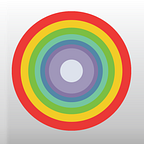AI Art: Vitriol as Validation
What the “Pick Up A Pencil” Crowd Misunderstand
To flip open Robert Hughes’ The Shock of the New is to see a subtitle that hints that even Hughes, titanic art critic of the 20th Century, might have missed some of the point himself.
Art and THE century of change. As we sit at the quarter way mark of the 21st Century, a century where we have already seen massive upheaval, it seems almost quaint to imagine the 20th Century as the century of change, and somehow, we’ve now settled back into “normality”.
“If we want things to stay as they are, things will have to change.”
― Giuseppe Tomasi di Lampedusa
Is each new advance in technology, regardless of the time in history, experienced in the same way by the people of the time?
I expect they are.
It’s a product of human capacity and the individual’s baseline of knowledge and understanding of the world around them. If every time is the most exciting time to be alive, then now qualifies as the most exciting time to be alive while simultaneously rendering the notion obsolete.
Since the Sumerians first pushed a wedge into a slab of wet clay, creating the first written text, every century has been the century of change. This is not to discount the centuries that went before. Given enough information, I’m sure the case for many of those centuries could be made, too.
Perhaps that is the very nature of humanity.
We are born, thinking the world revolves purely around ourselves, and sparing any anomalous mental condition such as narcissism, we progress to an understanding that we are just one part of a greater whole.
And then we die.
What also progresses is our understand of art.
Searching for definitions of what art is quickly collapse because the very definitions include words that require further definition, requiring a third layer of definition, and very soon the enterprise has unravelled.
Occam’s Razor leads us to only one satisfactory definition.
Art is what you think it is.
I feel that I’ve derived this from James Elkins in some way, but I couldn’t find a reference. Art is subjective. Period. There is no right answer, only your answer.
Picasso’s Guernica routinely makes it onto the list of the greatest artworks of all times, yet superficially it’s violent, ugly and colourless, defying many a definition of art. If art is subjective, how do these lists even exist?
Rather than objectivity, it’s something I describe as subjective consensus. In other words, what constitutes art for a number of individuals coincide. That some voices, Hughes for example, are seen as more credible adds further weight to the consensus.
The Art World™ does its best to channel objectivity simply because it needs to. Once money becomes involved, making authoritative assertions becomes crucial to setting the value of the work.
It’s unsurprising that many of the most vitriolic criticisms of AI Art revolve around some perceived financial inequity. They’re stealing my ideas, and thus income! This is going to put artists and illustrators out of a job! There is no real effort or talent involved, so AI Art is worthless.
Worthless art is worthless art, regardless of its genre or how it is made.
Money does change everything and for the sake of “authentic” subjectivity, it’s best taken out of the equation. Excluding that other great purveyor of financial and social control, morality, is probably a good idea too.
If an artwork really was a complete nothing burger, it would easily be ignored. This goes for any iteration of art. Many “legacy” artists are determined to assert that AI Art is such a nothing burger, however such efforts unintentionally have the opposite effect. To make such attacks on AI Art requires the protagonist to assert a definition of art that can’t survive its own genesis.
Incumbents always denigrate the upstarts
Whether business, music, art or design, no one likes to see their preeminent position eroded by the newcomers. The denigration usually begins when the newcomers look like they’re going to have legs.
AI Art is compelling in a way the is not easy to understand. Would the image I’ve used above be more compelling if I had rendered it, over a period of weeks, with oils, brush and canvas? If so, why?
Whether AI Art turns into a mere footnote in art history remains to be seen. Regardless, all efforts to tear it down only increases its profile. Whether AI Art is even a term we use to describe such creations in the future is also questionable.
Consensus Will Decide
Art may be subjective, but that doesn’t mean critics like Robert Hughes aren’t valuable. They may not be able to overcome subjectivity, but they can move beyond superficiality.
Almost a century after Duchamp, goading AI artists to pick up a pencil strikes me as an incredibly superficial response.
Interested in some further reading on AI Art? You may enjoy this:
